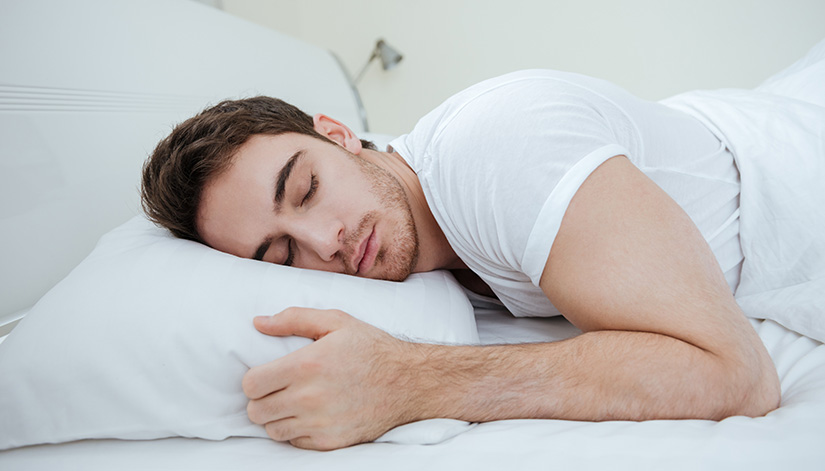When a person is stressed, they can feel it seeping through their neck and back. For these times, you should remember that there are some exercises you can do to relax yourself. These will help ease overall body tension and calm down your anxious brain. Exercising the strained body parts might not be the long-term formula, but they will soothe your pain for the time being.
Your body and mind are not separate entities, they are connected to each other. Poor mental health can sometimes make your muscles tense up as your body defends itself from discomfort. Going for a quick run or doing some meditation are particularly effective in releasing tension because they gradually warm up the body, and enhance your core strength. You also loosen up the specific regions in your body where tension has built up, like the arms, neck, hips, and waist. These are the usual spots. While the aforementioned exercises are great for relieving yourself when you feel anxious, you can also do them to stop these kinds of psychological and physical stress from arising in the first place. It is also fairly easy on the joints, so you won’t end up being heavily exhausted afterwards.
You can try learning how to manage your breath to get the most out of your workouts. Stabilizing your breath prevents your heart from beating too hard. It helps reduce some of the physical signs of stress and anxiety. By saying a gratitude mantra to yourself when you do your meditation, you can increase the mental benefits you earn from the workout. Focusing on what you’re grateful for, helps you stay in peace for a little while and stops your brain from spinning with other concerns. This little prayer is said to have a significant calming impact on one’s state of mind. It is also a nice way to wake up and/or end your day with; but feel free to do it whenever you are comfortable. Such calming exercises ultimately pave the path for better mental and physiological health in the long run.
Sometimes you feel tired because your muscles have swelled up. Stress from a hectic day’s work can result in this, and if overlooked for long, can even lead to chronic illnesses. Although muscle inflammation is bad, to a certain extent, it can be a signal for muscle growth and recovery. So it’s not like we don’t want muscle inflammation to happen; instead, we want to bring it under control as quickly as possible because the muscles will only grow back stronger.
Resting Adequately:

When you cannot sleep properly or occasionally have poor-quality sleep, you feel drowsy, not rested, and unable to focus on anything all day long. Your memory and learning ability depends on getting a sufficient amount of rest at night. Sleep promotes muscle recovery, energy restoration, and releasing of hormones that impact hunger, body growth, and muscular tissue regeneration. Making time to relax and enjoy life is thus crucial for sustaining good health, even if there are no set rules for how much relaxation one should incorporate into their lifestyle. Regular sessions of yoga and meditation have long been used to elevate mood in addition to reducing stress. Besides this, it also lowers blood pressure and also boosts your immunity and circulatory system.
Try to unwind and enjoy the little things in life. Laughter eases apprehension, and that encourages muscle relaxation. Even petting a dog stimulates the body’s release of hormones like serotonin, and oxytocin (the feel-good hormones) and reduces the stress hormone, cortisol. Human touch also relaxes you by releasing serotonin, which lowers the blood pressure and pulse. Getting a massage has the same impact as well.
The quantity of sleep you require is age-related as well, much like how much physical activity you need. For example, it is 10 hours for children in grade school, almost 9 hours for teenagers, and a minimum of 7-8 hours for older people.
Sleep quality is important as well. The quantity of REM, or rapid eye movement, you get is referred to as the sleep quality. This REM period, which should take up one-fourth of your total sleep time, is the most restorative of the five sleep cycles. For instance, if you are an adult and you sleep for 7 hours, you should get about two hours in terms of REM sleep. You are at risk of developing diseases including cardiovascular disease, obesity, type 2 diabetes, and depression if you don’t get enough good sleep for days on end. Consult your doctor for advice if you feel that you are not getting sufficient rest on a daily basis and that it negatively impacts your work and life at home. It will help you find out if you may have an underlying sleep condition, including sleep apnea and insomnia.
How to Get a Good Sleep:

Try to reduce your intake of coffee and smoking before going to sleep. Come up with a sleep regimen that you adhere to, including the weekends. Maybe set your thermostat between 60 and 70 degrees because your body temperature tends to fall while you sleep. Avoid watching TV or working in bed as well; halt all those tasks half an hour before you go to sleep to give your brain some time to relax. Working out earlier in the morning, if you generally work out at night after work, also helps set your mood for the day, as you breathe in the fresh air around you.
Exercise.

Getting the right proportion of exercise has advantages for almost all facets of life. Exercise not only aids in weight control but also increases longevity, mental health, state of mind, and bone and muscle strength. Adults should engage in endurance activities two times a week and at least a few hours of aerobics. This is also good for older people. Children and teenagers should do an hour of physical activity daily and some kind of strenuous activity at least three days per week. This will help build their bones and muscles.
To get the recommended amount, you don’t have to spend all day running around. A brisk walk, gardening, playing some sort of sport, or biking for a few miles are examples of moderately strenuous exercises that you can do for an hour easily. Jogging, swimming laps, and group exercises like Zumba or step aerobics are examples of more intense activities that you can also do. Yoga and weightlifting will help you build some muscles and do resistance exercises like push ups twice a week.
In our fast-paced society, it can be difficult to keep up an active lifestyle on the daily. Time can easily fly by no matter what you do, be it a student, an employee. Your overall health and ability to adapt to your surroundings will be affected by the way you handle your mental and physical well-being. You’ll perform better and be more happy in the simple pleasures of life if you exercise daily, and get enough sleep. It does take a bit more discipline and dedication to make an effort for yourself, but it’s worthwhile in the long run.

